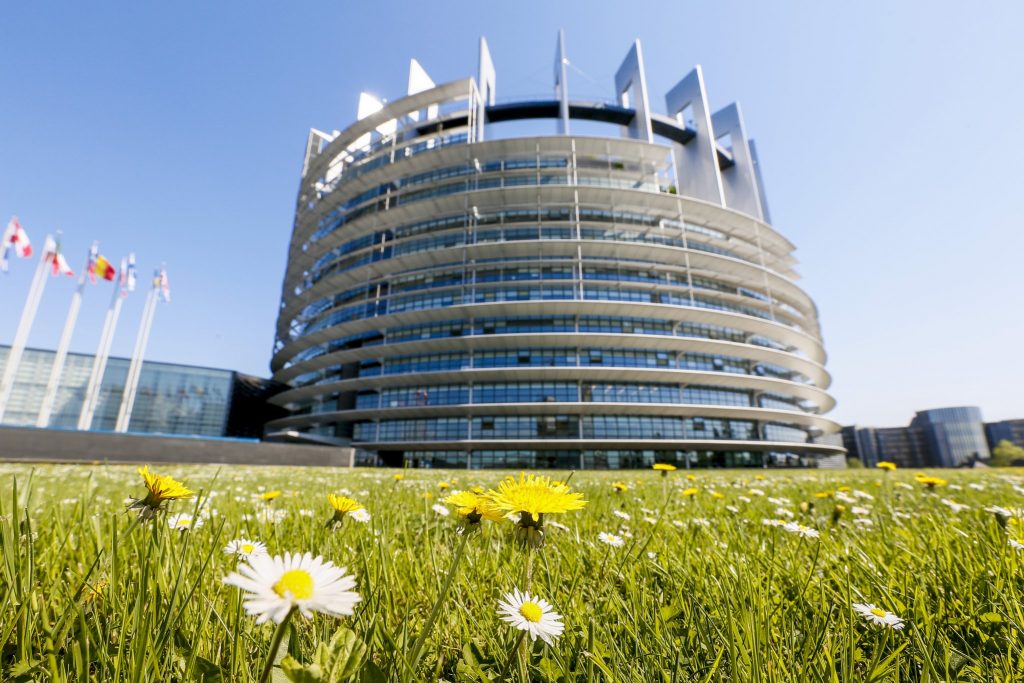
The Environment committee in the European Parliament has been given a greater say in the reform of the Common Agricultural Policy (CAP). This includes the right to bring “amendments” (proposals) direct to the Plenary of the European parliament.
Yesterday (Thursday 5th June) the Conference of Presidents (essentially the leaders of the political groupings in the parliament) granted shared competence to the Environment committee over CAP.
This follows the recommendation to do so earlier in the week by an arbitration group in the Parliament – the CCC, or Conference of Committee Chairs, as we covered here on Tuesday (see article below).
CAP | Will Some Power be Wrestled away from Agri Committee this week?
What does this mean?
In practical terms, this now means that ENVI – the Committee on the Environment, Public Health and Food Safety – is an associate committee to AGRI – the Committee on Agriculture and Rural Development. Importantly, the ENVI Committee can now take amendments direct to Plenary. Amendments taken by full committee are considered to have more clout that amendments taken by individual MEPs.
Coordination is also to enhanced, timetables are to be agreed, and real efforts have to be made to come to agreements, based on acknowledged expertise in specific areas.Where uncertainty or disagreement exists, the Conference of Presidents (group leaders in the Parliament) have the final say.
ENVI Committee members will also be allowed to participate at CAP negotiations in EU Commission and member state level.
Why did this happen?
ENVI have been granted extra powers because the CCC and then the Conference of Presidents decided that Article 54 of the Parliament’s rules applies in this case ( and not article 53 or 53+). Article 54 applies “when the matter falls almost equally within the competence of two or more committees, or that different parts of the matter fall within the competence of two or more committees.”
Article 54 applies because of the increased rhetoric – supposed focus – on environment and climate change in the CAP, as well as the public goods dimension to the CAP already in place since 2003.
For more on this, and on the AGRI reluctance to share (any) power, see this op-ed by Marco Contiero of Greenpeace EU from Tuesday.
Vested Interests Fight to Keep Control of Agriculture Reform
Here’s the text of Article 54
Article 54 in detail – (excluding technical point 1, available at link)
Article 54 of the Rules of Procedure of the European Parliament (Associated committee procedure)
– the timetable shall be jointly agreed by the committees concerned;
– the rapporteurs concerned shall keep each other informed and shall endeavour to agree on the texts they propose to their committees and on their position regarding amendments;
– the Chairs and rapporteurs concerned are bound by the principle of good and sincere cooperation; they shall jointly identify areas of the text falling within their exclusive or shared competence and agree on the precise arrangements for their cooperation; in the event of disagreement about the delimitation of competences the matter shall be submitted, at the request of one of the committees involved, to the Conference of Presidents; the Conference of Presidents may decide on the question of the respective competences or decide that the joint committee procedure under Rule 55 is to apply; it shall take its decision in accordance with the procedure and within the deadline set out in Rule 201a;
– the committee responsible shall accept without a vote amendments from an associated committee where they concern matters which fall within the exclusive competence of that associated committee;. if the committee responsible fails to respect the exclusive competence of the associated committee, that associated committee may table amendments directly in plenary; if amendments on matters which fall within the shared competence of the committee responsible and an associated committee are not adopted by the committee responsible, the associated committee may table those amendments directly in plenary;
– in the event of a conciliation procedure in respect of the proposal, Parliament’s delegation shall include the rapporteur of any associated committee.
A decision by the Conference of Presidents to apply the associated committee procedure applies at all stages of the procedure in question.
The rights attaching to the status of “committee responsible” are exercised by the lead committee. In exercising those rights, the lead committee must take due account of the prerogatives of the associated committee. In particular, the lead committee must comply with the obligation to observe the principle of sincere cooperation as regards the timetable and respect the right of the associated committee to determine the amendments submitted in plenary which fall within its exclusive competence.






1 Trackback / Pingback
Comments are closed.